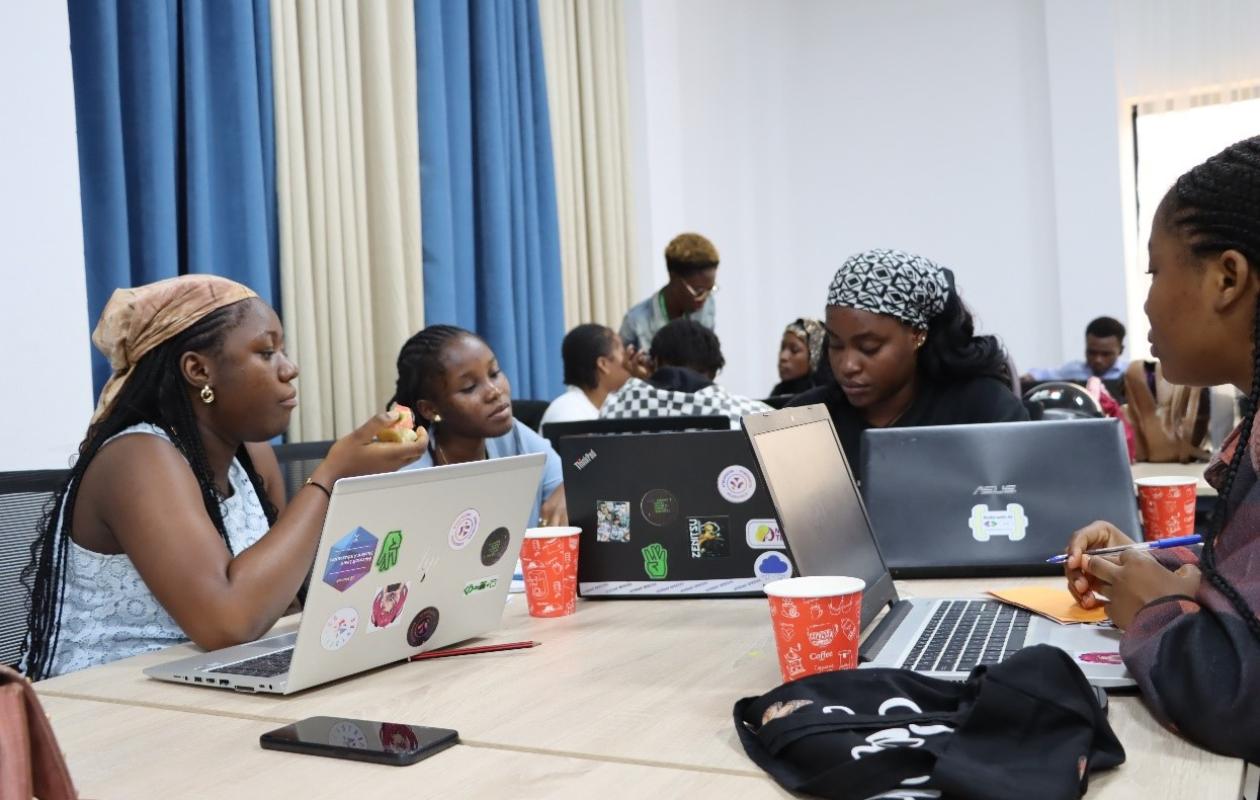
Face à la répression, la fronde numérique de la diaspora togolaise
Faced with the "silence and fear" generated by the repression of protests in Togo, artists and activists from the diaspora are leading a digital revolt from abroad, to prevent the movement of discontent demanding the departure of President Faure Gnassingbé from running out of steam.
In recent months, Togolese youth have taken to the streets to protest the arrest of critical voices, the rise in electricity prices, and, above all, the new Constitution, which allows Faure Gnassingbé, head of state since 2005, to remain in office without term limits.
Violently repressed, these rare gatherings banned by the authorities were already responding to calls for "civic disobedience" launched on TikTok and Facebook by the "M66", or "June 6 Movement", the president's birthday and the first day of the mobilizations.
This movement, born abroad and launched by four people, is now supported by around a hundred influencers, bloggers and musicians from the Togolese diaspora.
Among them, the singer Zaga Bambo, with hundreds of thousands of followers, denounces on his networks the "manipulation of Togolese youth" by the leaders, deplores the lack of investment in education and relays speeches from "mothers tired of the governance" of Faure Gnassingbé.
The goal? "To speak out for others, given that in Togo, silence and fear reign," Solim Kolani, the organization's communications officer, explained to AFP.
The mobilization on the ground has been hampered by a severe government crackdown, which left at least seven dead and "dozens" injured in June. Numerous arrests continue to be made, such as the recent arrests of the famous rapper Aamron - since released under judicial supervision - and former Minister of the Armed Forces Marguerite Gnakadè, currently in custody.
The "M66", which defines itself as a "citizen organization" without political affiliation and "committed to democracy, social justice and progress", is still in its infancy.
She intends to bring the movement's voice to the international scene, thanks to Togolese figures who are expatriates or in exile, via an energetic campaign on social networks.
The group is also working behind the scenes to structure the protest, by creating safer channels of dissemination, so that the Togolese can organize themselves on the ground.
In the past, "WhatsApp was the most popular platform, but since the regime used" the Israeli spyware Pegasus in 2017 and 2018 to arrest people, we advise against its use," explains Farida Bemba Nabourema, one of the figures of the protest movement that claims to be leaderless.
Now, the diaspora communicates with the Togolese people "80% via TikTok," she estimates.
The next step: prepare "for the possibility that the regime completely cuts off access to the internet," adds Ms. Nabourema. How? By encouraging "the use of Bitchat," a messaging service accessible via Bluetooth.
This 2.0 mobilization is resonating with a majority of young people (60% of Togolese are under 25), while the poverty rate reaches 43% and the proportion of informal jobs is overwhelming. At the end of August, nearly 600 people gathered in Paris following a call from the "M66," AFP noted.
In a sign that this elusive yet popular movement is worrying the Togolese government, the latter announced on July 9 that it had issued international arrest warrants for its members based in France, Canada and the United States.
They are accused in particular of "calling for hatred, insurrection and murder," Togolese Human Rights Minister Pacôme Yawovi Adjourouvi told AFP, denouncing an "attempt to fabricate a pseudo-crisis" via social networks to "destabilize Togo."
Togolese leaders are also fighting back on the digital front, explains Farida Bemba Nabourema, notably by "creating a special unit" and "buying bots from Arab and Asian countries." She herself regularly sees her Facebook account flooded with threatening messages.
"They also invested heavily in influencers from other African countries to give Faure Gnassingbé a different image on the web," she adds, as she says with the Ivorian "LESLY QUEEN 5ETOIL," followed by more than 250,000 people on TikTok.
In videos in which she describes herself as "Papa Faure's daughter," she extols "development in Togo" and praises its leader. Contacted by AFP, she had not responded by the time this article was published.
Commentaires (0)
Participer à la Discussion